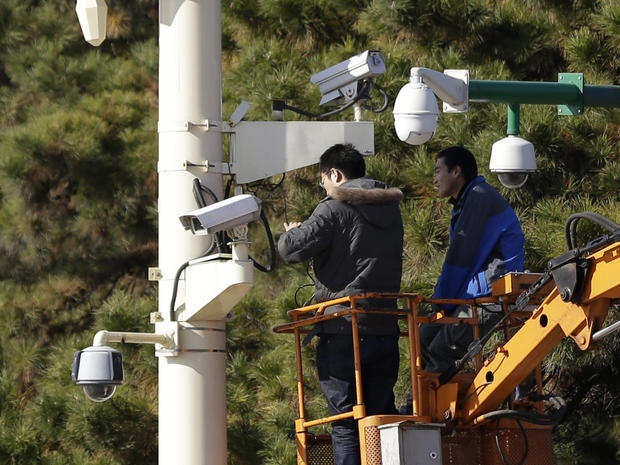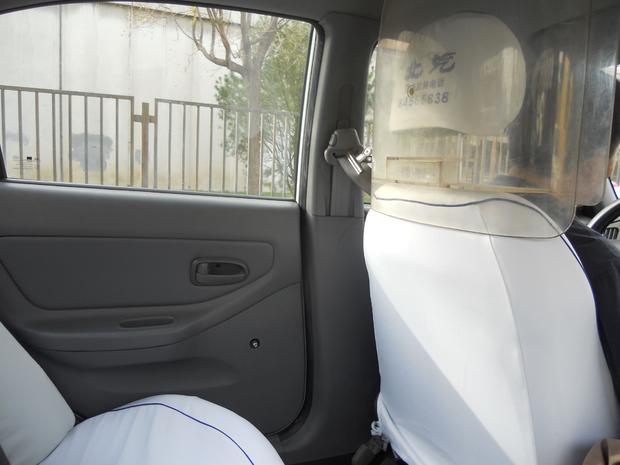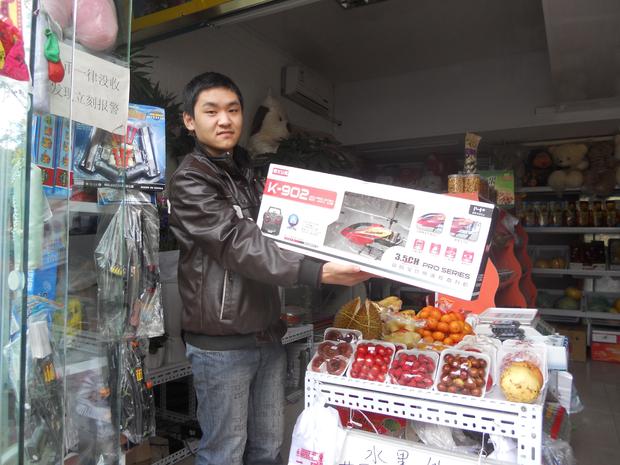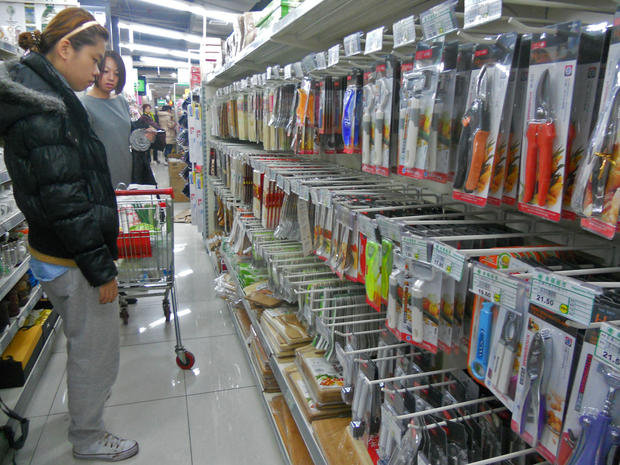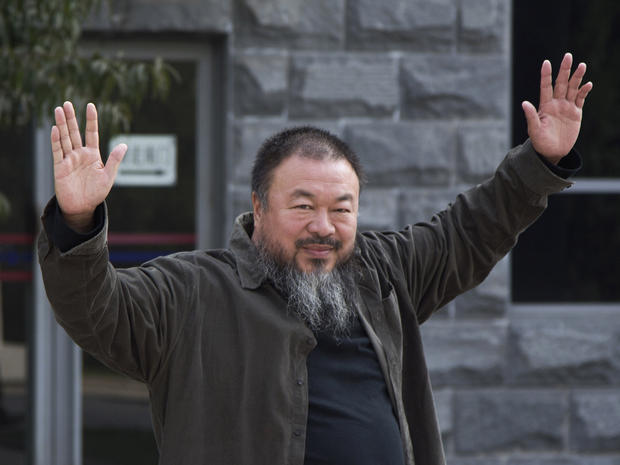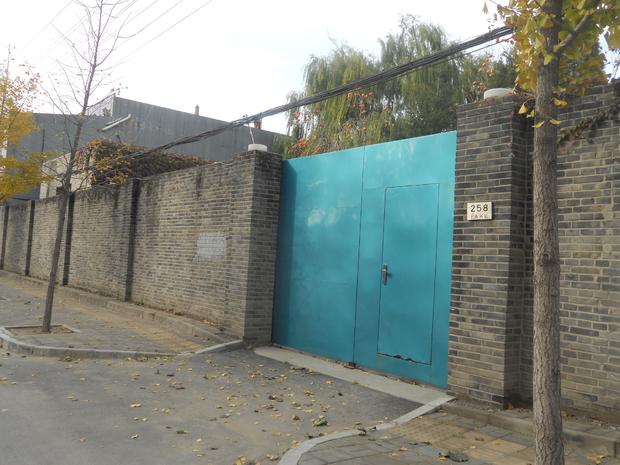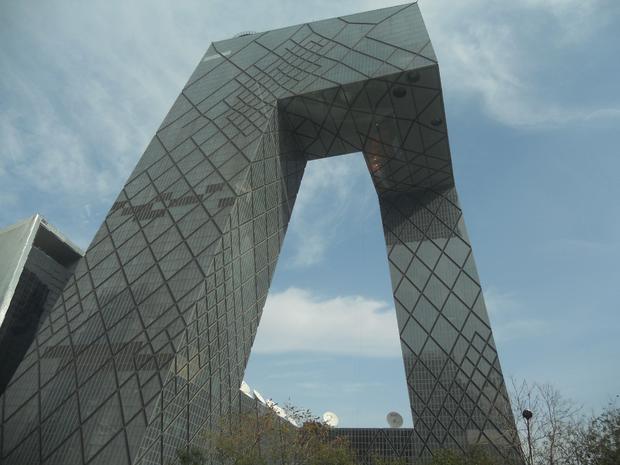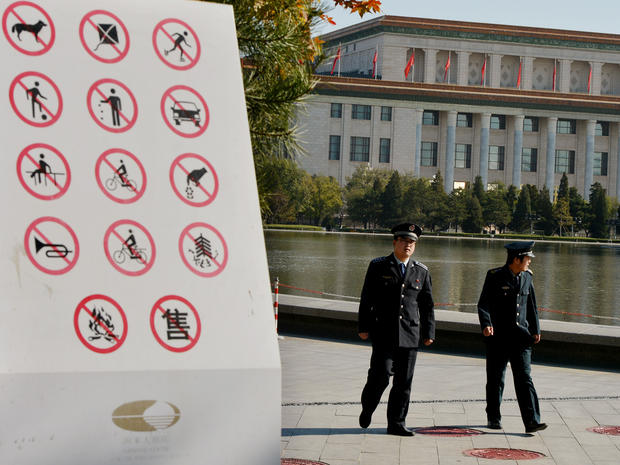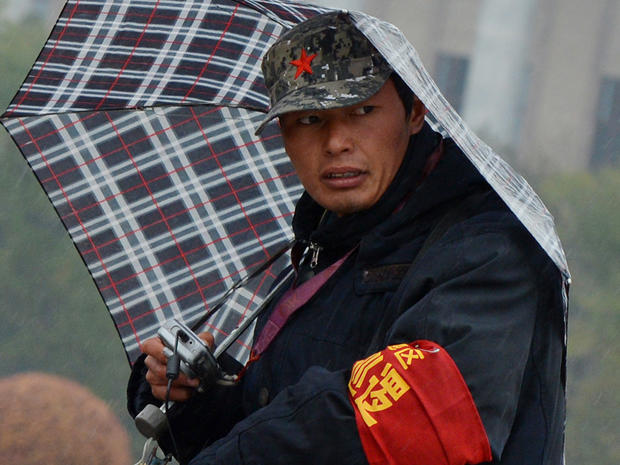China faces change, with extreme caution
The week long meeting has drawn more than 2,000 Communist Party delegates to Beijing from across the vast country, and ensuring social stability is a top priority for officials. Beijing has taken a series of unusual measures to prevent protests. The list of restrictions effects all aspects of life in China's capital, which has a population of about 20 million.
At left, workers check security cameras on Tiananmen Square in Beijing, Nov. 12, 2012.
Windows up
Rewards have been offered to taxi drivers for turning in people who attempt to distribute political information. Drivers have also been urged to check their back seats for any political messages left behind by passengers.
No air mail
Beijing residents have been banned from flying model or remote-control aircraft for fear the toy planes could be used to spread political slogans.
The Beijing Carrier Pigeon Association, meanwhile, says it postponed two annual races which were to take place during the Congress over fears from officials that the birds might also have been used to carry political messages.
No air mail
Some stores have stopped selling balloons - another potential vehicle for spreading protest messages during the Congress.
Ping-Pong balls also made the list of suspicious airborne items that could carry messages of dissent.
No knives
A shopper gazes at the shelves at a Beijing supermarket where all of the kitchen knives were been removed.
Store managers said they would have knives for sale again in December - well after the Congress wraps up and the transition is complete.
Dissidents to ground
Hundreds of activists and dissidents are under house arrest for the duration of the Congress. Ai, who is normally happy to speak to media, was reluctant to speak to CBS News in the run-up to the Congress.
Dissidents to ground
Normally outspoken critics of the government like Ai are refusing to comment on the Party Congress, citing fears that doing so could risk their security.
Some dissidents have been assigned police minders to keep tabs on them for the duration of the Congress.
Censors in overdrive
All Chinese broadcasters have stepped-up their already-strict censorship for the Congress, with songs containing "unlucky" words like si (die) and xia (down) reportedly being banned from TV stations across the country.
International news channels like CNN and the BBC have disappeared from television sets in some local health clubs.
Watchful eyes
Watchful eyes
The Chinese Communist Party's paranoia is on full display for its Congress in Beijing in a security squeeze extending from police swarming Tiananmen Square to elderly sentinels watching street corners.
The capital has 1.4 million 'public order volunteers' -- retirees, city street cleaners, firemen and low-paid security guards -- on the lookout for anything that could upset the sensitive gathering, even in the quietest residential neighborhoods.
